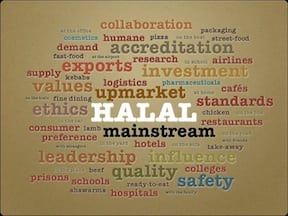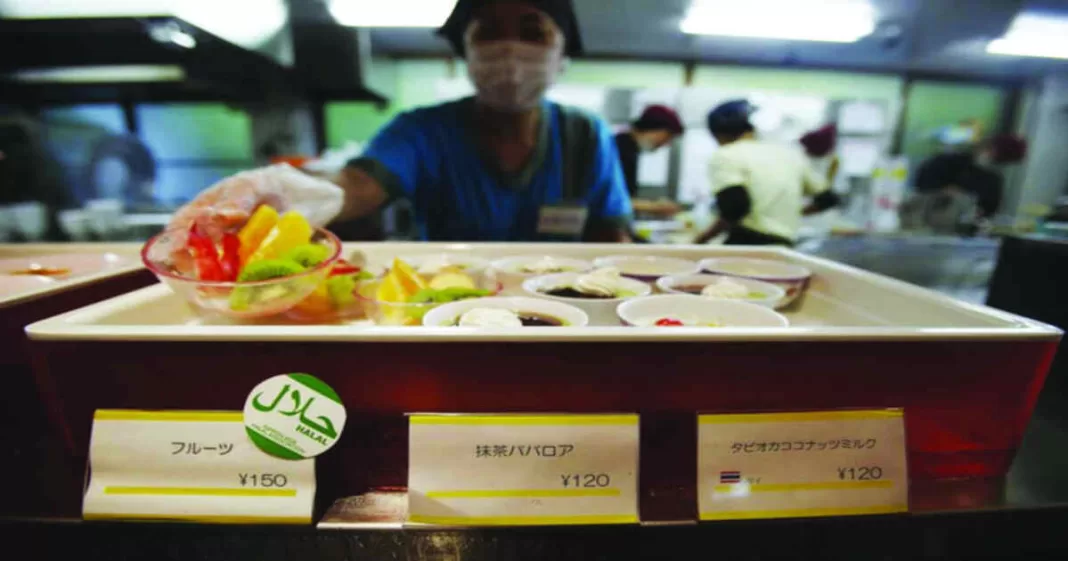 Contrary to popular belief, the industry is not limited to Halal food only. Instead, it involves pharmaceuticals and cosmetics as well. The Halal market is an example of many other departments in the modern world. It is one of the only consumable fields that adheres to traditions and modernizes itself with each passing era.
Contrary to popular belief, the industry is not limited to Halal food only. Instead, it involves pharmaceuticals and cosmetics as well. The Halal market is an example of many other departments in the modern world. It is one of the only consumable fields that adheres to traditions and modernizes itself with each passing era.
As we know, the Muslim population worldwide is increasing rapidly, and so is the demand for Halal products. However, the expansion of the halal industry also faces challenges. To meet customers’ needs and expectations, the Halal industry has developed the latest technology to drive Innovation in the field.
What Is Considered Halal?
The origin of the word Halal comes from the Arabic language. It translates to something being allowed to be permissible as per the Shariah or Islamic law. Therefore, every Muslim must ensure that whatever they use daily comes from a Halal source. You are misinformed if you think the ingredients need to be Halal. For something to be termed as Halal, everything, right from the ingredients to the process and packaging, needs to be permissible in Islam.
How Has the Halal Industry Evolved?
It is important to know about the roots of the halal industry to learn how it has revolutionized. If we look into its origins, the Halal industry dates back to when the teachings of Islam took root. People not only consider Halal practices for consumption, but they are also important for financial transactions, ethical laws, and diets. Over the years, these rulings have served as a base for a specific market that specifically caters to the needs of the Muslim world.
The Halal industry has grown rapidly in recent years due to several factors. Some of these include an increase in population, an increase in awareness among Muslims worldwide, and globalization. What started as a specific industry limited to a country’s borders has now spread worldwide. We now see labels and advertisements about Halal food sector and Shariah-compliant financial services. The Halal industry now serves Muslims from different cultures, markets, and countries.
The Major Driving Force Behind Halal Trends
As the Halal industry grows, technology is the driving force behind its expansion. Our modern world is full of technology, and concepts of digitalization, artificial intelligence, and Innovation are now reshaping how Halal products reach Muslims worldwide.
The Role of Digitalization and E-commerce
Consumers can now easily access halal products thanks to online platforms and applications. Muslims can now avail themselves of halal food delivery services and virtual marketplaces specializing in halal products.
Additionally, Muslims have easy access to apps that can verify whether products are Halal or not. These apps easily provide consumers with the certification numbers and the product’s authenticity, thereby increasing transparency and trust in the Halal product.
Blockchain and Its Role in the Halal Industry
Although relatively new, blockchain technology is quickly gaining popularity among Muslims. Blockchain technology is a ledger system that allows consumers to trace the journey of a Halal product, starting from the raw material.
By utilizing blockchain technology, companies can give a sense of authenticity about their Halal supply chain processes. Moreover, another benefit of blockchain technology is that it allows for streamlined halal compliance procedures and reduces the need for manual certification.
Artificial Intelligence
Artificial intelligence will truly shape the future of the Halal industry. Companies and consumers can easily utilize AI to assess huge amounts of data with a single click. AI technology helps analyze market trends and consumer behavior. Companies can then use this analysis to create marketing strategies to meet the world’s requirements.
AI also ensures that strict monitoring and auditing practices are in place so that Halal steps are followed throughout the product’s manufacturing process. The best advantage of AI technology is that it reduces the risk of noncompliance during the process.
What Are the Challenges That the Halal Industry Faces in Terms of Innovation?
There is a lot of potential for growth and Innovation in the Halal industry. However, this does not come without challenges to face.
The companies’ primary challenges are the complex regulatory requirements of Halal certifications and standardization. There are different standards and certifications for every region. Therefore, these companies must comply with the local regulatory authority rulings to expand globally. Alternatively, this may be a chance to grow as companies gain awareness about the standards and procedures of different countries.
Poor infrastructure and education often prevent people from accessing the latest technology. Limitations in digital awareness can also be a barrier to adopting technology-based Halal practices. To address this challenge, industry owners must invest in improving infrastructure and literacy.
Despite all these blockades, the Halal industry can easily position itself on the path of continued growth and success. By accepting Innovation and technology, businesses can easily learn about the growing demand for all Halal products and services.
Conclusion
Technology plays a transformative role in shaping the world’s industries, including the halal industry. Digitalization, e-commerce, and artificial intelligence are drivers of growth and help to promote transparency. It is also due to technology that manufacturers can meet the needs and requirements of Muslim consumers globally.
As the industry continues to grow, industry leaders must work together to address the challenges manufacturers face in growing their businesses. By accepting digitalization and innovation, global markets can easily comply with halal practices by staying true to Islam’s values and principles.



